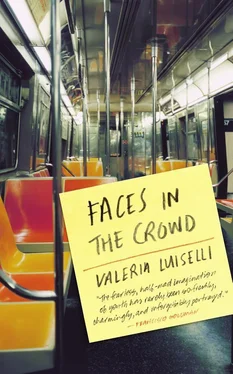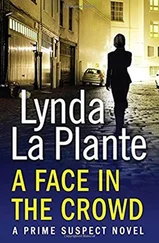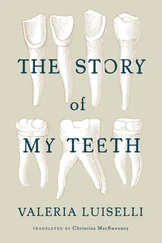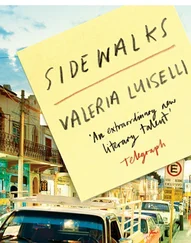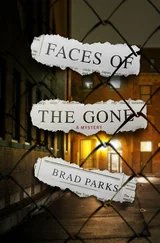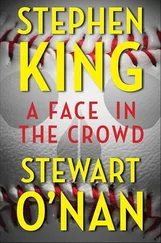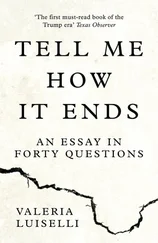*
The boy says he wants to play hide-and-seek in this enormous old house full of holes. It’s a different version of the game. His father has to be found.
Shall I tell you what happened, Mama?
What?
The house got bigger, and Papa got smaller, and he has to be found and put in a jar, like a spider or a cockroach.
*
A small, square sheet of paper falls from the withered branches of the orange tree. I take my magnifying glass from my blazer pocket and laboriously read:
Note (Owen to José Rojas Garcidueñas, Philadelphia, 1951): “It could be my last book. It’s going to have a title nobody has used in this century,
The Dance of Death
I had friends, in the Middle Ages, who showed me how it should be written. They did it pretty well. But I burn much brighter when I write.”
I don’t remember having written that. But it’s true that I burn when I’m writing.
*
We play. We search for my husband in the living room, among the debris: a Buzz Lightyear, a dummy, a foam-rubber brontosaurus, a little bell. We don’t find my husband.
*
If I were to write this novel, it would have this line by Emily Dickinson as an epigraph: “Presentiment is that long shadow on the lawn.”
*
Among the fallen books, we find one of my old Post-its.
A piece of your book, Mama!
Let’s see.
Here, you read it out.
Note: As a child, Owen had “the six magic senses.” He predicted earthquakes. The doctors in El Rosario suggested opening up his head to find the cause.
*
The narrator of the novel should be like an Emily Dickinson. A woman who remains eternally locked up in her house, or in a subway carriage, it makes no difference which, talking with her ghosts and trying to piece together a series of broken thoughts.
*
I don’t think Without is in the house anymore, Mama.
Why do you say that?
Because I think that if he was, he’d help us.
*
One day the narrator of this novel finds a pot with a dead tree on her doorstep and brings it inside. She waters it but it never really revives. She begins to write about what that plant sees from a corner of one of the rooms. The plant will start to impose itself on the voice of the narrator until completely taking it over. The dead tree narrates from a corner, to one side of the front door, from where the kitchen, the small lounge, and part of the bedroom can be seen. It likes watching the woman get undressed at night in her bedroom before going to the bathroom to brush her teeth: it watches the tangled trail of her pubis as she passes, then it studies the shape of her ass as she returns to the bedroom.
*
Help us do what?
I don’t know, help us find spiders, catch flies and cockroaches, eat cereal.
Would he help us glue the house back together?
Glue the house, Mama, what for?
So it can withstand the next earthquake?
Earthquakes don’t exist, Mama.
*
I get up from the kitchen table and head to the bathroom for a piss. I can report, with the greatest certainty a man in my condition is conceded, that I am now positively, absolutely blind. But blindness isn’t what I expected. Instead of a definite whiteness or blackness — which would have been a respite from the confusing chiaroscuro of the last months — things are beginning to appear again. Just when I’m starting to disappear. I flick on the bathroom switch. Electric light makes hardly any difference these days and rather serves, as that repugnant German philosopher wrote, to illuminate my almost total ignorance of the world. But on this occasion, the opposite occurs — or, perhaps more disturbingly, the opposite of the opposite. Perhaps this is unblindness. I switch on the light and see the whole bathroom, the floor carpeted with cat shit, the nearly empty bottles of discarded toiletries, half-finished rolls of toilet paper forming a pyramid next to the lavatory, a bottle of whisky in the sink, a creeper growing in through the small window that ventilates the miniscule space occupied by the bathtub. Around me, a score of flies, or perhaps mosquitos, buzz in the heavy air.
I glance toward the mirror to locate myself within this nightmarish scene. But I’m not there. Instead of my face, I see a flicker of Nella Larsen’s. So my theory was correct. This is my blindness. My unblindness. This is my hell. I turn off the light and unblindly complete my modest hygiene ritual.
*
And where can Without have gone?
I don’t know. Perhaps he’s on top of the house. Or perhaps he went to Philadelphia with Papa.
Papa’s not in Philadelphia, my darling.
Pa-pa, says the baby.
*
Standing by the sink, with the light out, I try to gargle. I can just make myself out in the invisible bathroom mirror. I’m a shadow, with the fading grimace of myself encrusted in the hole where my face used to be. I rinse my mouth and the contact of the cold water with my palate makes me retch. Squatting down, I vomit into the toilet bowl. My face is no longer enclosed by a contour; it extends toward the edge of something that can no longer contain me, like a glass on the point of overflowing. I’m afraid of coming unstuck from myself, I don’t want to turn around and spill over, outside my epidermis, like the antiman in that poem José Gorostiza finally finished, who says he is “besieged” in his epidermis. What an obscenely clinical word. Why not simply say “skin”?
The gargling makes me feel sick. I throw up into the sink. If the kids were to see me, they’d say I was the vomiting dwarf.
*
The children and I walk around like three cats in the dark corners, picking up things that have fallen and go on falling. The baby crawls happily on the floor carpeted with books.
*
One of the cats, most probably Cantos, my favorite, is waiting for me outside the bathroom door. I feel quite moved. It’s as if it understood that something was happening to me. That things aren’t going very well today. I try to stroke him, and as I slide my damp hand gently down his spine I realize that he no longer has a tail. Has he been fighting with That and Paterson? Bastards.
*
Mama, says the boy, looking out of the living room window into the patio, come and see.
What is it, my boy?
A little cat without a tail!
There is indeed a tailless cat walking around the patio as if it were the most natural thing in the world. It’s a disturbing sight. I take the two children back into the kitchen. We’re safer there.
*
As I cross the living room to return to the kitchen, carrying Cantos in my arms, I see Ezra Pound, clear as daylight, sitting in my Reposet, making notes on a piece of paper. Above his head, flies are gyrating in perfect circles, tracing a vortex. He’s focused on his task, and I don’t want to disturb him for fear of interrupting some important, or at least clever, poem. I pass him in silence, and enter the kitchen once more.
*
We’re not going to leave the kitchen anymore, I say to the boy. It’s too dangerous. If there’s another tremor, things could fall on us.
Houses, Mama?
Yes, houses.
*
Back in the kitchen, I pour myself a little more whisky and search for That and Paterson under the table. There they are, the catty things. I feel for their tails: nothing. How can three cats suddenly lose their tails? Not even a stump, a scar. Nothing. Just round little asses and thick fur where formerly there were tails.
I begin to write the children a letter that I’ll send when their mother tells me where they are: If they tell you I’ve died, kids, it’s a lie, I’m just fading away. The doctors say I’m going blind. But that’s not true either: what’s happening is that I’m rubbing myself out. And it’s not just me. The cats of this world are also rubbing themselves out. Watch out for their tails during your trip. You’ll see that some of them haven’t got any. Did you know that was possible? I didn’t. But even if I’m rubbing myself out, you two will always be able to see me if you want to. Anyway, what’s true is that I’m potbellied. And that I live with three tailless cats you’d really like. Their names are That, Paterson, and Cantos.
Читать дальше
